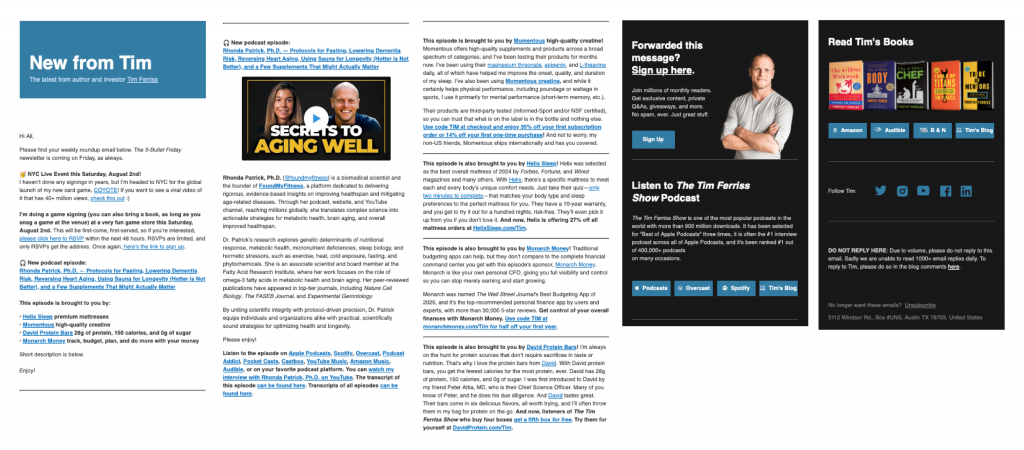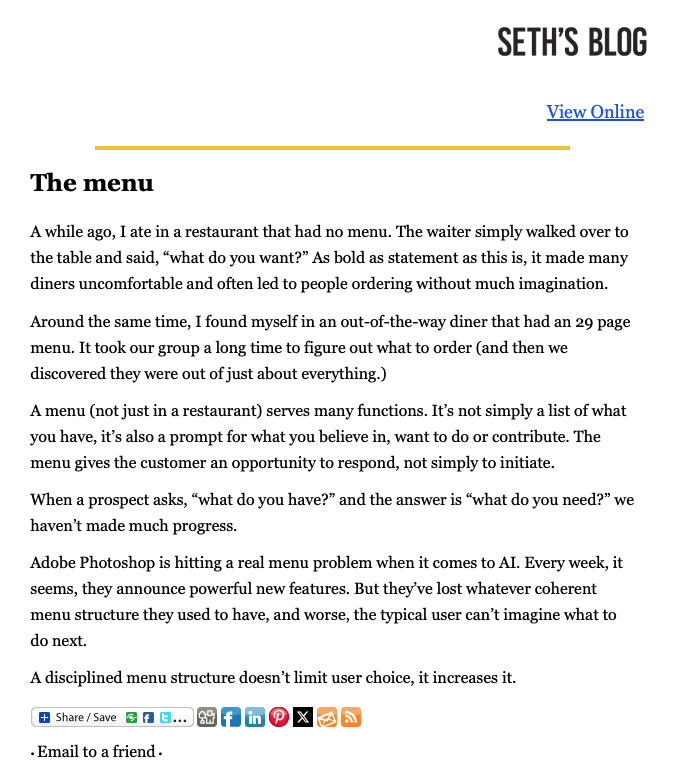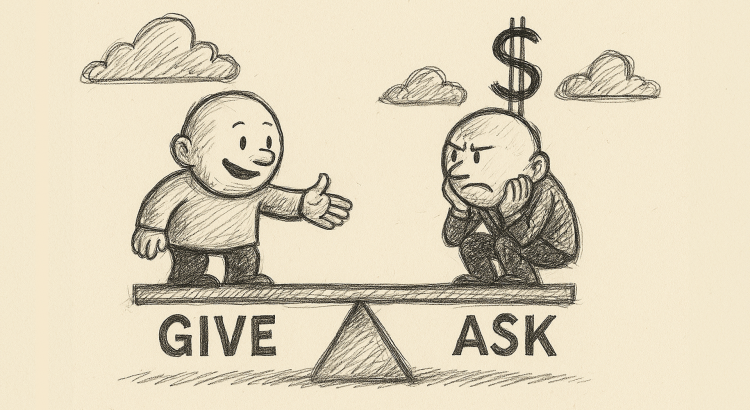I’m subscribed to emails from both Tim Ferriss and Seth Godin.
They’re authors/marketers and are in the business of sharing information, knowledge, wisdom, or whatever you want to call it. You know, ideas. The same kind of self-improvement crap I write about.
Their emails certainly have different Give-To-Ask Ratios.*
Let’s take a look at their most recent creations.

TIM FERRISS
- Over 1,000 words across 5 content blocks. It was so long I had to break it up into multiple screenshots.
- An absurd amount of links. I counted around 68?!
- HOWEVER: With so much content, I’d expect there would be a takeaway for the reader. But I don’t think there’s anything in this email that isn’t ads or calls to action. Everything in it is monetized! There’s no inherent value — the reader needs to leave the email (by clicking on one of the 68 things).
RATIO: Lots of Ask, very little Give.
As opposed to Seth…

SETH GODIN
- 212 words about a single concept.
- Minimal links.
- ALL value to the reader, no ads or calls to action.
RATIO: Lots of Give, very little Ask.
I don’t know if I could find two more opposite extreme examples.
As a writer (and by default, a marketer?), I think about this. I’ve tried different ratios.
I’m not here to say which one is objectively bad.
My question: which would I rather be?
Tim’s aggressive style must be getting results — or he wouldn’t be doing it.
But as a reader, I definitely prefer Seth’s.
I think that answers my question.
-Carl.
Extra Credit: Tim and Seth are friends. Here’s a video of them doing their thing together.
*Alex Hormozi explains: “Thankfully, the give-to-ask ratio has been well-studied. Television averages 13 minutes of advertising per 60 minutes of air time. That means 47 minutes are dedicated to ‘giving,’ and 13 minutes are dedicated to ‘asking.’ That’s roughly a 3.5:1 ratio of giving to asking. On Facebook, it’s roughly 4 content posts for every 1 ad on the newsfeed.”
